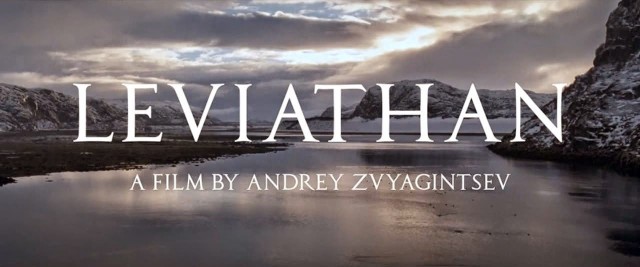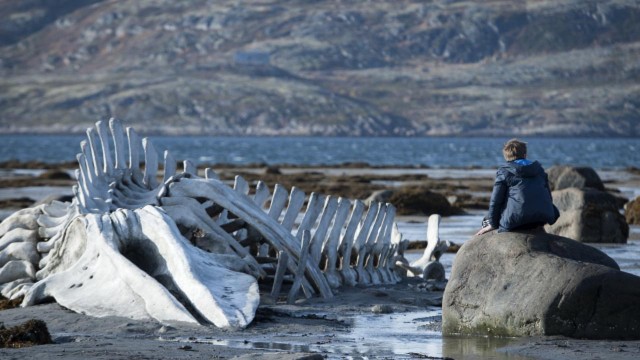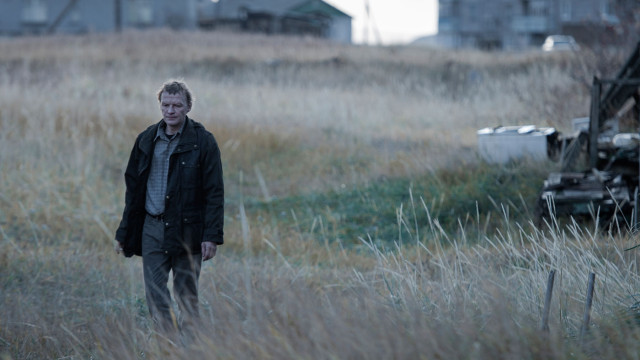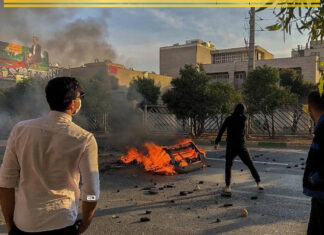
The refrain throughout the movie, though it explicates the horrendous politics and politicians, is about religion. The movie focuses a lot on priests, Masses, and Biblical lines are often quoted. The village people are shown to be deeply religious and orthodox Catholics. The scenes of violence and cruelty by the various characters in the movie, like the Mayor, are directly and unabashedly juxtaposed with the supposed ‘religiosity’ of these same people. It is pathetic to see the Mayor seeking forgiveness through confessions despite his cruel and ruthless acts. He truly believes he is doing God’s work. This brilliantly captures the self-delusion and hypocrisy that is latent in some deeply religious men or women.
The corruption is even prevalent in the higher rungs of the Catholic religious structure. The High Priest caters in his Mass to only the ones with BMWs parked outside. Amidst all this charade in the name of religious rituals, a poor and innocent man perishes. Leviathan is a barely masked and aggressive attack on the very nature of organised (Catholic) religion in rural Russia, which caters mostly to the men with deep pockets, revealing that even their sermons are directed towards the accumulation of power.
And in communist Russia, there is no god other than the state that oversees all aspects of the human existence. This is how it has always been, from Tsarist Russia onwards. Or so the movie proclaims to affirm.
Keeping in mind the two meanings behind the name of the movie: in Thomas Hobbes’ political treatise named Leviathan (1651), wherein he theorises the ideal structure of a state, people are essentially beasts and need a state apparatus that keeps them away from their self-destructive tendencies. But in the movie Leviathan, it is the state that swallows a common man whole. Leviathan is about the overwhelming power of the apparatuses of State, particularly Russian (the neo Stalin), and the extent to which it subjugates the individual will.
Similarly, Job 41 (‘The Book of Jobs’; Old Testament), which is quoted by a minor priest to Volya when he asks of the reason of suffering, tells of a tale of the sea-monster Leviathan, and how it is unbeatable by humans who try to kill it, but not by God’s power. God states that it is only his power that can affect change. But in the movie Leviathan, it is shown that that is not true: the true power rests with the (often corrupt) politicians. Leviathan shows in a grim manner that it is the State that one needs to be afraid of; it also offers an option that if one collaborates with it, one can be a master, however vicariously, over fellow human beings.
However, the moralistic tone of the movie, depressing as it is (and why shouldn’t it be? why should we always shy away from witnessing human nature at its most defeated?) makes the villainous characters of the mayor and his accomplices as wooden types, and are not well-rounded. It is also at times too dramatic to be true: Volya’s personal life, his wife and son, all add the human dimension to the movie, and have moving trajectories. But it does seem to function with the sole intention of twisting the hearts’ strings, making it almost insincere in its attempt to vilify…
Yet, the penetration into the eternal themes of human despair and futility, and the injustices of a system wherein the common people have no rights and are mere ‘insects’ (as the Mayor shouts at Volya in his drunken stupor) and are liable to be crushed by the boots that hold power, makes for a movie that is multi-layered, deep and complete; and that can shake ones placid and cultured senses. It also provokes in us a subdued anger against those forces that we are powerless to conquer – whether they are of God, or of power, or both. Leviathan leaves its viewers feeling that the Leviathan monster (as quoted in Job 41) really is too colossal for us to win over – and yet, isn’t it worth a fight? It is up to you.
By Ananya Tiwari






































